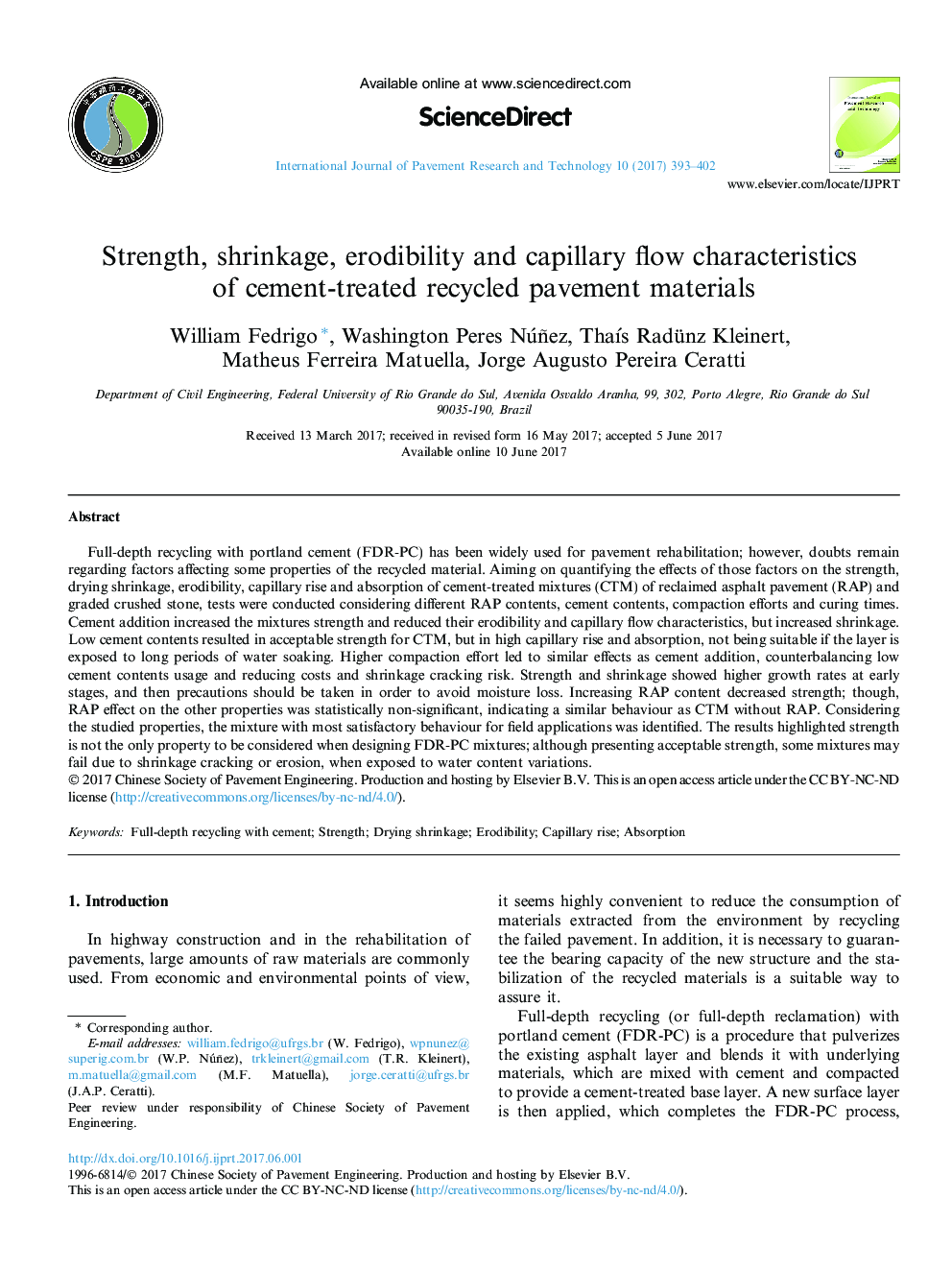| Article ID | Journal | Published Year | Pages | File Type |
|---|---|---|---|---|
| 4921947 | International Journal of Pavement Research and Technology | 2017 | 10 Pages |
Full-depth recycling with portland cement (FDR-PC) has been widely used for pavement rehabilitation; however, doubts remain regarding factors affecting some properties of the recycled material. Aiming on quantifying the effects of those factors on the strength, drying shrinkage, erodibility, capillary rise and absorption of cement-treated mixtures (CTM) of reclaimed asphalt pavement (RAP) and graded crushed stone, tests were conducted considering different RAP contents, cement contents, compaction efforts and curing times. Cement addition increased the mixtures strength and reduced their erodibility and capillary flow characteristics, but increased shrinkage. Low cement contents resulted in acceptable strength for CTM, but in high capillary rise and absorption, not being suitable if the layer is exposed to long periods of water soaking. Higher compaction effort led to similar effects as cement addition, counterbalancing low cement contents usage and reducing costs and shrinkage cracking risk. Strength and shrinkage showed higher growth rates at early stages, and then precautions should be taken in order to avoid moisture loss. Increasing RAP content decreased strength; though, RAP effect on the other properties was statistically non-significant, indicating a similar behaviour as CTM without RAP. Considering the studied properties, the mixture with most satisfactory behaviour for field applications was identified. The results highlighted strength is not the only property to be considered when designing FDR-PC mixtures; although presenting acceptable strength, some mixtures may fail due to shrinkage cracking or erosion, when exposed to water content variations.
